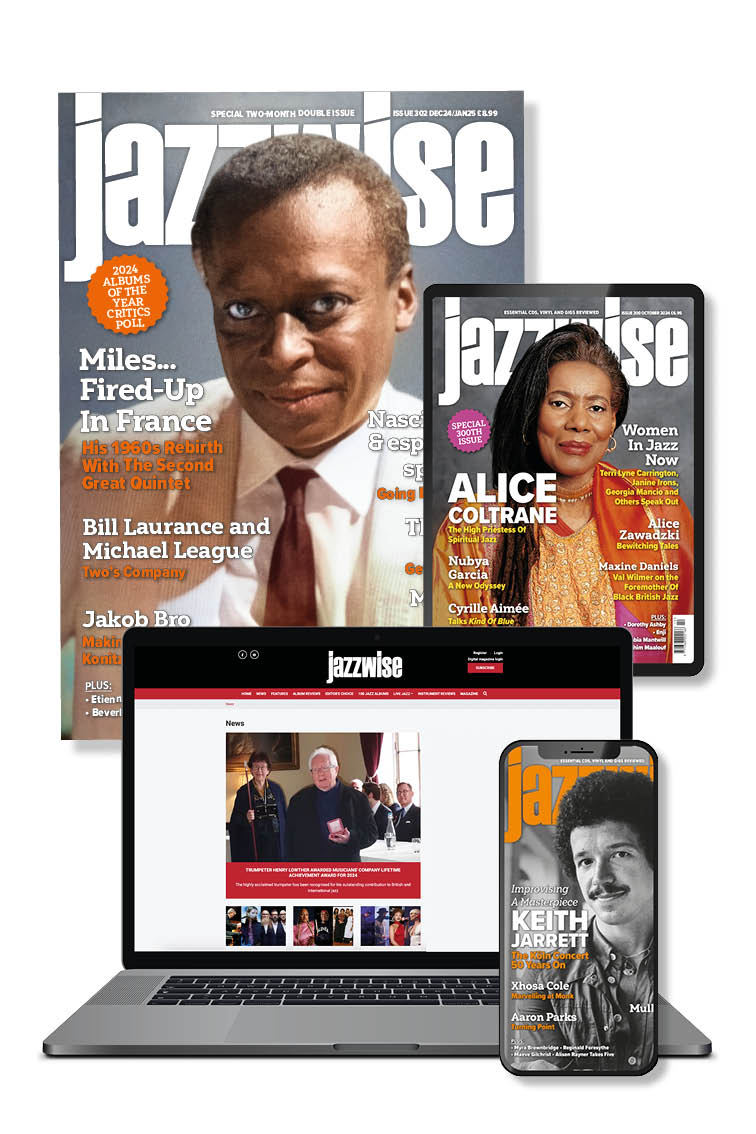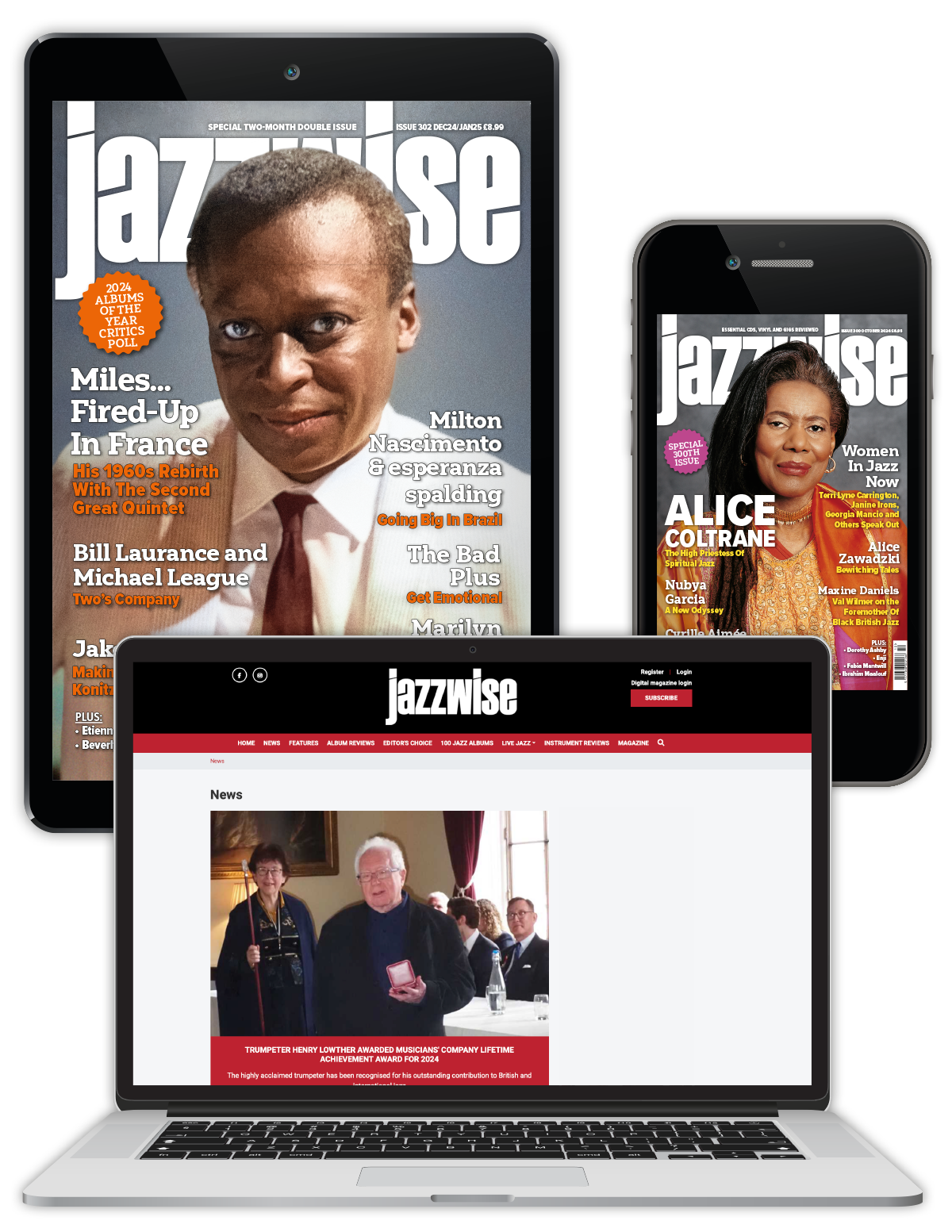Album Interview: Vijay Iyer Trio: Accelerando
Author: Stephen Graham
View record and artist detailsRecord and Artist Details
Musicians: |
Marcus Gilmore (d) |
Label: |
ACT |
Magazine Review Date: |
March/2012 |
Catalogue Number: |
9524-2 |
RecordDate: |
8-9 August 2011 |
The Vijay Iyer trio has the potential to alter the scope, ambition and language of jazz piano forever, and with each release that distant possibility that only history will relate becomes that bit more likely. The process, this album makes clear, moves some way closer. The pianist has an uncanny knack of making a listener think of jazz (even feel it) in a very different way in tune with a 21st century way of living replete with all the complexities of modern life. In the past Iyer has talked about the idea of “autoscopy” – a kind of out-of-body experience – and he manages deftly here with the supremely talented Gilmore and Crump to be both an observer and the process observed. The material on Accelerando steers an epic course from Ellington, through 1970s funk and disco, to the avant garde, and on to contemporary psychedelic-electronica navigated by Iyer's distinctive post-MBASE filter that also draws in five of the pianist's original compositions. ‘Human Nature’ – the Porcaro/Bettis song associated with both Michael Jackson and Miles Davis – Iyer covered on his album Solo, and ‘The Village of the Virgins’, the last track, taken from the ballet The River, sees Iyer cover Ellington once more, a link again to Solo. ‘The Star of a Story’, a Rod Temperton song from disco funksters Heatwave's Central Heating album is the definite curveball. Yet you won't be hearing Iyer's version, it's fairly safe to say down your local retro disco – glitterball or not.
Jazzwise talks to Vijay Iyer about the album
Why explore the obscure ballet music of Duke Ellington, ‘TheVillage of The Virgins’?
It's not so obscure to me. I loved it the first time I heard it, and I played it at my wedding. Ellington had a visionary composer approach to the piano. He has a lot of elegant simplicity in the music but there's always a twist that is sly and fascinating, made out of triads, little touches move up and down, and there's also a simple sustain beat that lies across it. If you hear the ballet music played by the orchestra it has an amazing arc, simple but little by little incrementally overwhelming.
You cover Herbie Nichols's ‘Wild flower’. He called himself a “jazzist“. What do you think he meant?
I don't know what he meant. He was a really creative innovative pianist and composer, and had a vision that wasn't like anyone else. Compositionally, there was a certain spareness, and mystery. When I first heard his music I was kind of bewildered. On the surface it sounds like jazz, but it isn't like anything else. It really was about innovation in the language.
Do you think you're interested in music more spatially than metrically?
‘Accelerando’ is a word for a kind of experience, somehow your perception changes, it's faster that it actually is. I'm interested in how the actions involved in making music are to assume control of the listeners’ experience, a powerful aspect of music.
Do you prefer playing ‘Human Nature’ on your own or with the trio? You obviously play differently each time.
I think that there are new possibilities than when we started. It's more polyphonic as a trio. We can work against each other, build something, and it ratchets up to a different level.

Jazzwise Full Club
- Latest print and digital issues
- Digital archive since 1997
- Download tracks from bonus compilation albums throughout the year
- Reviews Database access
From £9.08 / month
Subscribe
Jazzwise Digital Club
- Latest digital issues
- Digital archive since 1997
- Download tracks from bonus compilation albums during the year
- Reviews Database access

